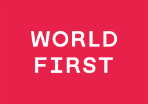Daniel is Founder and CEO and has 20 years of experience in the international finance world focusing on cross-border payments, technology and the property sectors. Daniel is widely quoted as an expert within the money transfer industry including by The Economist, The Wall Street Journal, Reuters, CNBC and Bloomberg. Daniel is passionate about helping consumers and businesses find the best and most efficient ways to transfer money internationally.
Frequently asked questions
How we calculate the savings
Contents
Summary
Latvia's money transfer regulations
Currency union
Foreign investment in Latvia
Latvia's monetary and regulatory authority
Property and taxation
Currency
Summary
As a member of the single currency eurozone, Latvia uses the euro (€, EUR) as its official currency. The Latvian government and the Central Bank of Latvia, as part of the EU, have adopted and maintain liberal economic policies and follow the policies of the European Central Bank (ECB) on matters of currency control. Sending money to Latvia or transferring funds out of the country is relatively hassle-free, as there are currently no restrictions on foreign exchange transactions.
Latvia's money transfer regulations
Latvia is part of the Schengen Area and the single currency eurozone and follows the economic policies of the EU. Currency can be freely transferred into and out of the country, and there are no restrictions on international money transfers or on currency conversions. Latvia maintains liberal economic policies in an effort to attract and encourage foreign direct investment. It does not impose restrictions or limitations related to investments or international transfers for residents or foreign investors, and, per current EU legislation, gives the same rights and obligations to foreign investors as it does to local investors.
Latvia takes banking regulations and anti-money laundering initiatives seriously, with some of the country’s banking requirements even exceeding the regulatory and financial requirements set forth by the EU. The country has an independent anti-money laundering unit that oversees its financial transactions, including foreign exchange transfers. This unit operates under the supervision of the Prosecutor General’s Office.
Currency union
Latvia joined the European Union (EU) in May of 2004, the Schengen Area in December of 2007, and the single currency eurozone in January of 2014. Latvia’s entry into the single-currency eurozone has simplified the process of sending money into or out of the country. The single payment system introduced in 1999 and used throughout the eurozone has helped to make currency transfers between the member countries much simpler and more cost effective, and has also helped to make it easier for many countries not part of the EU, including the United States, to send money to or from the country. This single payment system includes countries located within Europe that still use their own currencies, such as Norway, Iceland, and Liechtenstein.
Foreign investment in Latvia
Latvia is ranked 24th out of 189 countries for its ease of doing business, according to the 2014 World Bank Doing Business Report. Its membership in the Schengen Area has contributed to the adoption of more liberal economic policies, leading to a favorable investment climate for local and foreign investors.
Latvia’s location provides access to large markets in Russia and Central Asia. Its transportation infrastructure includes three ports connected to both its road network and its railroads. Its road network is connected to Central Asian and European road networks, and its railroads are connected to Russian, Belarus, and other Baltic states. It has the largest international airport within the Baltic region.
Currently, Latvia’s labor costs are the fourth lowest within the EU, and its workforce is multilingual and well educated. The Latvian government has established additional tax benefits and special incentives for foreign and domestic investors based on the creation of four distinct economic zones (SEZs): the Riga Free Port, the Ventspils Free Port, the Liepaja Special Economic Zone, and the Rezekne Special Economic Zone. It also recently introduced a system that seeks to create an alliance between the Latvian public sector of local and national government institutions, its private sector, composed of both national and international companies, and major Latvian academic and research institutions. Called the POLARIS process, this system was established to encourage foreign direct investment into the country, and to help stimulate economic growth.
Latvia's monetary and regulatory authority
The creation of the eurozone and its monetary union resulted in the adoption of a single monetary policy set by the European Central Bank (ECB). As part of the eurozone, Latvia adheres to monetary policies established by the ECB. Financial regulation and oversight of the domestic banking system is also managed by the Central Bank of Latvia, which helps to ensure that all financial operations fall within the regulatory framework established by the ECB, including international money transfers.
Property and taxation
The country’s personal income tax rate is 24%, and its corporate income tax rates are amongst the lowest in the EU, at a flat rate of 15%. Latvia does not favor the treatment of foreign capital over domestic capital, or vice versa. Citizens of Latvia and the EU are allowed to freely purchase and own property. Citizens of non-EU countries may also purchase property, as long as it is developed property. There are restrictions for non-EU citizens who wish to purchase undeveloped land, forest, or agricultural land in Latvia.
Currency
Latvia adopted the single currency used by eurozone members, the euro, in 2014. The euro is based on a system of 100 cents, with coins distributed in values of 1, 2, 5, 10, 20 and 50 cents, EUR1 and EUR2, and banknotes printed in denominations of EUR5, EUR10, EUR20, EUR50, EUR100, EUR200 and EUR500. Each eurozone member countries’ central bank or government is responsible for issuing euro banknotes and coins for that country’s use.



















